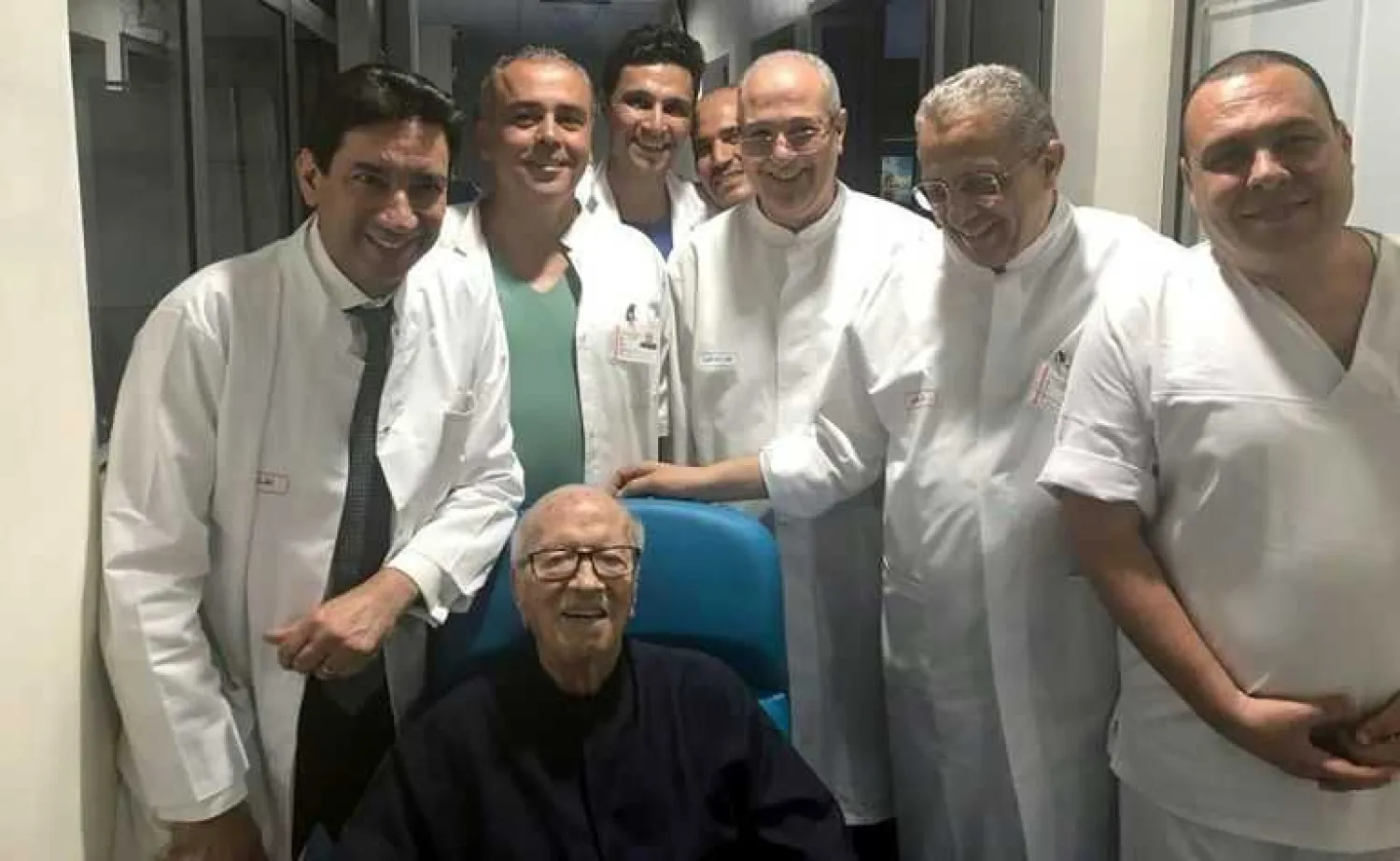Tunisian President Beji Caid Essebsi's illness and the sudden announcement of his transfer to the military hospital twice in one week, has sparked a political and media crisis.
The President’s health updates came amid accusations of a “bloodless coup” against Essebsi and the Speaker who is also ill.
All eyes now are on the Presidential Palace in Carthage and the Premiership in Kasbah over expected decisions on critical issues.
Tunisian constitutional law experts said they were waiting for urgent political measures, including a “presidential order” to call on voters for general elections on October 6.
Leaders of ruling and opposition parties as well as trade unionists exchanged accusations on trying to politically exploit the president's illness.
MP Rym Mahjoub of Afek Tounes accused political parties in the ruling coalition of “eagerness to rule” and trying to push the country towards a “political and constitutional vacuum.”
Leader of Ennahda Party Rached al-Ghannouchi also accused in a lengthy television interview political parties of being involved in a “scheme to get rid of the president” without naming them.
On the other hand, leftist political parties and media accused some Ennahda leaders of trying to organize a “bloodless coup” within the parliament, adding that they want to replace ailing Speaker Mohamed Ennaceur, 85, with his first deputy and Ennahda top official Abdelfattah Mourou or former Prime Minister Ali Larayedh.
The change aims at appointing a leading Ennahda figure as the head of state, replacing Essebsi, 93, if his doctors or the presidency declare his post vacant due to the president's illness and inability to perform all of his tasks.
Such a scenario reminds Tunisians of the medical report adopted by Prime Minister Zine El-Abidine Ben Ali in November 1987 to justify the dismissal of President Habib Bourguiba.
However, Mourou reacted strongly to the advocates of such a scenario and revealed that he was among the first to telephone the Speaker who has been absent for a long time due to illness.
He also indicated that he was the one to suggest that the Speaker visits his office for a meeting with heads of parliamentary blocs and publishing a photo that reassures the public and refutes rumors of incompetence.
However, members of Nidaa Movement, including the head of its parliamentary bloc Soufien Toubal, responded to the reports and attributed to themselves and their party of foiling the “coup attempt in parliament.”
Mutual accusations of involvement in the coup heightened when it was confirmed that political and media figures were involved in circulating the rumor on the president’s death on Thursday after he was admitted to the hospital for treatment.
Some of them later apologized for promoting the rumor on social media.
A number of senior Tunisian politicians visited Essebsi in the hospital to refute the news, among them Prime Minister Youssef al-Shahed, Defense Minister Abdul Karim al-Zubaidi, Ghannouchi, and the president’s son Hafedh.
In turn, spokeswoman Saida Garrache announced that the head of state will return to Carthage Palace in a short time after his health has improved.
A number of constitutional law experts, including Jaouhar Ben Mbarek, Salim Laghmani and Kais Saied, considered that the top priority of the President after resuming his activity will be to sign the presidential decree inviting voters to the October parliamentary elections followed by presidential elections in December.









